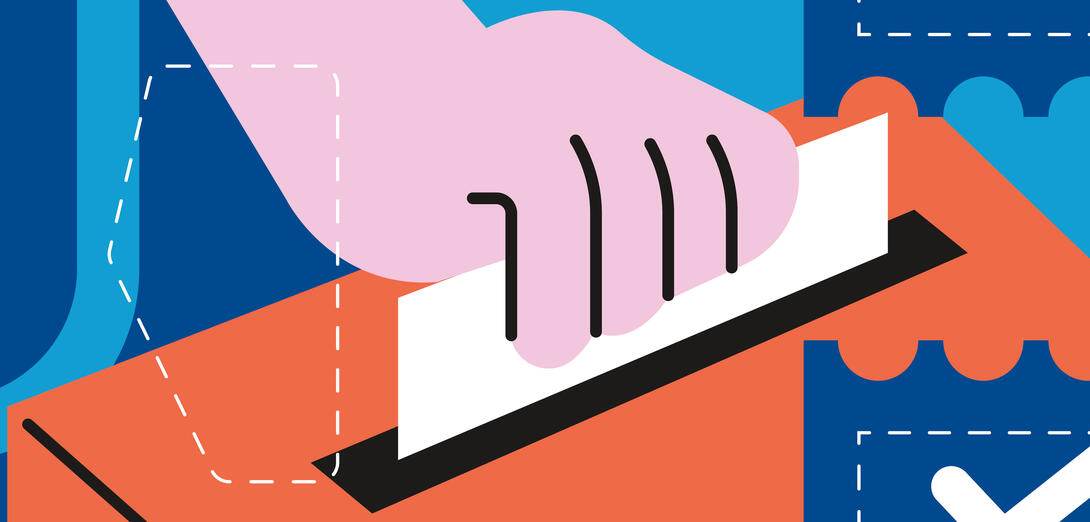As the chief negotiator for the Alberta Teachers’ Association (ATA), I’m sometimes asked about our approach to bargaining. A labour action strategy is crucial during bargaining because it ensures the Association stays prepared, disciplined and proactive. Bargaining involves not only presenting demands and waiting for a response, but also effectively leveraging power while managing risks and maintaining control of the narrative.
Labour disputes can escalate quickly if not managed properly. To avoid disorganized, ineffective or hasty actions that could undermine a union’s — in our case, the ATA’s — position, a clear escalation plan is necessary to ensure that any labour action is strategic rather than emotional and that actions are taken at the appropriate time and with adequate preparation.
Perhaps the best way to frame the bargaining approach is to look at the hawk and the dove. When the hawk and the dove both want the same resource, they choose to battle or to concede, respectively. This hawk–dove paradigm is overly simplistic, though, as it assumes that the only options are aggression (hawk) and concession (dove). So, I’d like to add an owl to the mix.
The owl signifies a more nuanced and pragmatic approach, acknowledging that the highest risk of a strike involves not just strategy, but also taking into account the unintended consequences of miscalculation, emotion and loss of control.
The owl understands that strikes are not solely the result of deliberate choices but often emerge from a series of escalating events that spiral out of control. Labour history, much like military history, is replete with instances where both sides miscalculated, raising tensions beyond anyone’s original intent. The optimal strategy is not merely to prepare for conflict (hawk) or to avoid it at all costs (dove), but to actively manage the risks of escalation while pursuing robust bargaining objectives.
How events spiral
- Emotional escalation — During a crisis, intense emotions can cloud judgment. A poorly timed or inappropriately phrased statement, an unexpected external event or a handful of individuals acting impulsively can escalate tensions in unpredictable ways.
- Loss of command and control — Managing complex organizations under pressure can be challenging. Messages may be misinterpreted, leading to unintended actions, much as military miscommunications have triggered unplanned battles.
- Time pressure and mistakes — Making quick decisions during crisis situations can result in errors, as governments and military leaders have stumbled into conflicts they later regretted.
Owls in labour action: A different playbook
- Map out the crisis scenarios — Owls prepare for potential escalations by outlining various crisis scenarios and their unintended consequences. What if a statement is misinterpreted? What if employer actions provoke an unexpected backlash? What if public sentiment shifts unpredictably?
- Controlling the narrative — Owls understand that perception is reality. The goal is to shape events rather than be shaped by them. This involves strategic communication that de-escalates when necessary and applies pressure where effective, ensuring that messaging remains disciplined and clear.
- Strategic action, not just reaction — Hawks advocate for aggressive measures, doves promote restraint, and owls emphasize thoughtful escalation and contingency planning.
- Leaders must lead — Owls understand that in high-stakes situations, maintaining composure and clarity is essential. Leaders must set the tone and ensure that team members make decisions based on a shared strategic vision.
- Exit strategies — The best generals know how to enter and exit a war. Owls prepare off-ramps, establishing clear pathways to resolve a strike before the damage becomes excessive. This involves defining in advance what an acceptable resolution looks like and ensuring that the other side understands this pathway as well.
The owl advantage
Hawks win battles but can lose wars. Doves avoid battles but may concede too much. Owls don’t merely focus on the fight itself; they emphasize the long game, managing risks, seizing opportunities and ensuring that any labour action bolsters the owl’s position instead of creating long-term vulnerabilities.
By thinking like an owl, the ATA can sidestep the greatest danger: not merely losing a battle, but becoming ensnared in a conflict that neither party desires, resulting in harm for both, with neither truly victorious. ❚

ATA Coordinator, Teacher Employment Services
Sean Brown is the ATA’s chief negotiator. He joined the ATA in December 2015 and before that served on Provincial Executive Council as the District Representative for Edmonton District for three years.


